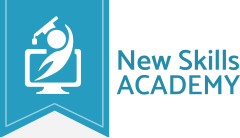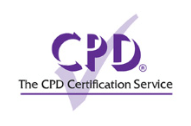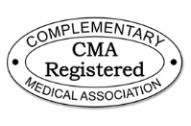Payroll Diploma
Payroll Diploma Course
Are you currently working in the accounts department and you want to fast-track your career and want to be more productive for your team and company? Do you own your own company and are hiring employees for the first time and you now have to learn the rules and regulations involved in payroll? This course will provide you with the knowledge, tools and skills you need to complete payroll in an effective manner.
Introduction to the Payroll Course
This payroll course is broken down into 23 information-packed modules which are designed to provide you with the essential tools and knowledge you need to complete payroll in an effective and orderly fashion at all times. The course is offered online, enabling you to study at your own pace and in your own time. You can study using your computer at home or your laptop, or you can choose to use your tablet or phone; as long as you have an internet connection.
The payroll course comes with a certification on successful completion. This enables potential employers to confirm your credentials and hire you with complete confidence. You will be required to pass an end-of-course test, however, if you do fail this initially you will be able to re-take the test.
Remember, you will have lifetime access to the learning modules for added convenience.
What you will learn
This course is brimming with useful and valuable information for you to learn and start using. The course is designed to provide you with insight that you can start incorporating into your work without delay. Some of the things you can expect to learn when completing the payroll course include:
- Gain an understanding of what payroll systems are and why you need one.
- Learn the basics of payroll systems. What you need to know, errors and the importance of communication.
- Identify the payroll systems in the United Kingdom. What to include and working with HMRC.
- Understand that you need to run an efficient payroll system. Staff training, reviews and record keeping plus much more.
- Gain insight on how employees starting and leaving the business impacts payroll. This module will provide insight into what to do, P45s and timekeeping
- Learn how to deal with HMRC when it comes to new employees, what information HMRC will need from you and how to ensure you pay the employee the correct amount each month or week.
- Learn how to calculate gross and net pay. This module will teach you the difference between gross and net pay, how to calculate them and why you need wage slips for each employee.
- Understand the different deductions you need to know about to come to net pay amounts.
- Gain insight into what statutory pay is, how long an employee qualifies, record keeping and reporting to HMRC.
- Learn about the national minimum wage based on age groups.
- Gain an understanding of the national insurance contribution systems. This module includes why we pay, the different rates, employer contributions and more.
- Learn how to manage the online PAYE system.
- Identify what the employment allowance is.
- Understand retirement schemes.
- Learn the different programs available for payroll.
- Tips to correct payroll errors.
- Understand the importance of annual reporting.
Benefits
There are so many benefits of completing this payroll course, these include:
- Fast-track your career.
- Gain insight into managing your own payroll within the United Kingdom.
- Understand what you need to have an effective payroll system in place.
- Study online at your own pace and using any device.
- Enjoy the convenience of information-packed modules.
- Comprehensive syllabus complete with online support.
- Lifetime access to modules to revisit and refresh whenever you wish.
This course includes
24/7 Student Support
End of course certification
Lifetime access to your course
Compatible with modern devices
- What exactly a payroll system is
- Why you need an effective payroll system
- How a large business and small business work differently in terms of their payroll systems
- What you need to know in terms of HMRC (the taxman)
- The basics of how to set up a payroll system
- Safety measures in case of unforeseen circumstances
- Communication issues and what happens if you don't communicate important information
- Documentation you will need to generate
- Reiteration on why you need an effective payroll system in place
- The fundamental points that a payroll system needs to include
- Why payroll and HMRC requirements are closely related
- Why a high quality payroll system keeps employees happy overall A basic overview of UK payroll software packages and what you need to look for
- Why it is important to familiarise yourself with the ins and outs of your payroll system
- Training staff on how to run your payroll system
- Why it is important to regularly review and maintain your system
- Communication is so important when it comes to the best payroll system you can implement
- What to do when an employee starts employment within the company
- What to do when an employee leaves employment within the company
- What is a P45? And why do you need the information within it?
- What are tax codes and what do they mean?
- What you need to do when a new employee joins the company, including the paperwork and information required in order to set them up on your payroll system
- Why HMRC needs information relating to employment changes, to reinforce your understanding
- What to do in relation to student loan deductions from an employee's salary and how to report deductions to HMRC
- How to ensure your new employee gets paid correctly and on time, and why this is so vitally important
- What gross pay is, what net pay is
- How to calculate gross and net pay
- The importance of payroll software in calculating net and gross pay
- Why a payslip is so important
- Whether you should manually check gross and net pay in your payroll submission
- What net pay is, and why it differs from gross pay
- What a voluntary deduction is, and some examples
- What a statutory deduction is
- How voluntary and statutory deductions affect an employee's pay
- What is Statutory Sick Pay?
- When can an employee claim Statutory Sick Pay, and how long can they claim it for?
- How does an employee qualify for Statutory Sick Pay, and what are the exceptions?
- Record keeping in relation to Statutory Sick Pay
- What exactly the National Minimum Wage is in the UK
- How the National Minimum Wage affects apprentices
- Who isn't entitled to the National Minimum Wage
- What happens if you don't pay an employee the National Minimum Wage
- What is the National Insurance Contributions system (NIC)?
- Why do we pay National Insurance? What do contributions entitle us to as workers, both now and in the future?
- Different types and rates of National Insurance, and what they mean for your employee., and a general overview of the system types, and who they apply to.
- Employer's National Insurance contributions, rates and explanation.
- Exactly what the National Insurance system is and what it is for
- The potential reasons why an employee may pay less National Insurance contributions through their wage statutory deductions
- How do you report to HMRC that an employee is paying less National Insurance
- Recordkeeping in relation to National Insurance contributions
- What is the PAYE system in the UK?
- Why is the PAYE system beneficial for both employers and employees?
- What are tax codes, and why are they important?
- How do you send PAYE information to HMRC?
- What exactly is the Employment Allowance?
- How does the Employment Allowance benefit a business?
- Reiteration on Class 1 National Insurance contributions (NICs) for both employees and employers
- When can you claim Employment Allowance?
- What exactly is an employment termination payment?
- Under what circumstances would an employment termination payment be made?
- Payments in relation to redundancy - what are they? How are they taxed? How are they reported?
- Why is the subject of employment termination payments such a grey area?
- What is retirement? A quick definition of the term
- Different types of pension schemes, and what they mean for the employee
- Workplace pensions, the ins and outs explained
- State Pension, the ins and outs explained
- What is RTI (Real Time Information)?
- How do RTI and PAYE go hand in hand?
- How do you report payroll information in RTI? Who undertakes this task?
- What to do if you outsource your payroll duties
- What does payroll software actually do? Why does a business need it?
- Why your software needs to be HMRC tested and recommended
- Software options for small businesses, with 10 employees or less
- Software options for larger businesses, with more than 10 employees
- How can an error to payroll occur?
- What are the consequences of not correcting errors to your payroll submission to HMRC?
- What to do if you pay your employee too little, or too much
- What to do if you report the wrong pay or deductions to HMRC/you pay HMRC incorrectly
- Why do employers need to keep employee records, and what information needs to be kept? How long does this information need to be kept for?
- Data Protection - why an employer needs to comply, and what this consists of
- Payroll records from HMRC point of view, what you need to do, and what records you need to keep
- Tax Compliance Checks - What is this? Exploring the ins and outs
- What the end of the tax year means for employers. What to do as 6 April approaches, the beginning of the new tax year.
- Sending your final payroll report for that tax year
- Why you must update payroll records for every employee
- Why you must update your payroll software
- A reminder of the general tasks associated with a payroll system
- A reminder of why businesses must comply with HMRC guidelines
- Legal obligations in terms of the National Minimum Wage
- Legal obligations in terms of PAYE (Pay As You Earn) and RTI (Real Time Information)
 ID: YDFT67YHJ
ID: YDFT67YHJ
of achievement
This certificate is presented to
Your Name

For completing the
Payroll Diploma
on 21st November 2025
Selena Hurford
Selena Hurford
Course Tutor

Daniel Morgan
Daniel Morgan
Head of Academy

Anyone who has an interest in learning more about this subject matter is encouraged to take the course. There are no entry requirements to take the course.
The course is broken down into 23 individual modules. Each module takes between 20 and 90 minutes on average to study. Although you are free to spend as much or as little time as you feel necessary on each module, simply log in and out of the course at your convenience.
You can study the course any time you like. Simply log in and out of the web based course as often as you require. The course is compatible with all computers, tablet devices and smart phones so you can even study while on the move!
Once you have completed all 23 modules there is a multiple choice test. The questions will be on a range of topics found within the 23 modules. The test, like the course, is online and can be taken a time and location of your choosing.
The pass mark for the test is 70%.
If you don’t pass the test first time you will get further opportunities to take the test again after extra study. There are no limits to the number of times you can take the test. All test retakes are included within the price of the course.
You can either use your Visa, MasterCard, American Express, Solo cards or PayPal account to pay for the online course. Our site uses the latest SSL encryption to ensure your safety. All payments are handled securely by PayPal.
You can begin the course immediately after your payment has been received. You will create your login details during the checkout process. We will also send you an email confirming your login details.
We estimate that the course will take about 15 hours to complete in total, plus an additional 30 minutes for the end of course test.
Once you have been awarded your certificate it is valid for life. The certificate does not expire or need renewing.
What our students have to say...
A boost on my CV
 Clear and informative content, excellently delivered for students of all levels to easily undertake.
This course gave me a great level of understanding to confidently take on even further payroll related education. It filled in the gaps where my knowledge was not so strong, which I have now confidently applied to my day to day job.
A boost on my CV which I feel will make me more attractive to future employers. Overall excellent and highly recommended!
Alex Hooton - London
Clear and informative content, excellently delivered for students of all levels to easily undertake.
This course gave me a great level of understanding to confidently take on even further payroll related education. It filled in the gaps where my knowledge was not so strong, which I have now confidently applied to my day to day job.
A boost on my CV which I feel will make me more attractive to future employers. Overall excellent and highly recommended!
Alex Hooton - London
I would thoroughly recommend this course to anyone starting out or wanting to progress in a payroll role.
 Having recently started a role in the payroll department I felt I needed to gain knowledge from as many sources as possible.
I found this course to be thorough, easy to understand and the website easy to navigate. It gave me a much greater understanding of payroll systems, the legal obligations of an employer and HMRC guidelines.
I would thoroughly recommend this course to anyone starting out or wanting to progress in a payroll role.
Wendy Spencer - Bradford-on-Avon
Having recently started a role in the payroll department I felt I needed to gain knowledge from as many sources as possible.
I found this course to be thorough, easy to understand and the website easy to navigate. It gave me a much greater understanding of payroll systems, the legal obligations of an employer and HMRC guidelines.
I would thoroughly recommend this course to anyone starting out or wanting to progress in a payroll role.
Wendy Spencer - Bradford-on-Avon
A good introduction to payroll
 This course was a good introduction to payroll and the content was easy to read and well set out. I would recommend this course to anyone that would like to start out in payroll.
Mark McAuliffe - Peterborough
This course was a good introduction to payroll and the content was easy to read and well set out. I would recommend this course to anyone that would like to start out in payroll.
Mark McAuliffe - Peterborough
Good and clear quality and content
 Highly recommended ,with good and clear quality and content ,simply lead in payroll world ,absolutely amazing way to gain knowledge and skills for help kick career.
Pete Musial - Telford
Highly recommended ,with good and clear quality and content ,simply lead in payroll world ,absolutely amazing way to gain knowledge and skills for help kick career.
Pete Musial - Telford
Brilliant course that was easy to understand
 This was a brilliant course that was easy to understand and fits into your lifestyle by being able to access at times that suits you.
I needed a refresher course and this ticked all the boxes. One area which I was not aware of was the Employment Allowance Incentive but I now understand this fully. It is also good information on record keeping along with Data Protection.
I highly recommend this course. The fact that you get a Diploma Certificate at the end only enhances your CV and gives you a sense of satisfaction.
Donna Raynes - Carlisle
This was a brilliant course that was easy to understand and fits into your lifestyle by being able to access at times that suits you.
I needed a refresher course and this ticked all the boxes. One area which I was not aware of was the Employment Allowance Incentive but I now understand this fully. It is also good information on record keeping along with Data Protection.
I highly recommend this course. The fact that you get a Diploma Certificate at the end only enhances your CV and gives you a sense of satisfaction.
Donna Raynes - Carlisle
I've done lots of distant learning courses but this is by far the best!
 Clear and concise content in a great structure to allow to be able to revise and study key points without being rushed forward without fully understanding content. I've done lots of distant learning courses but this is by far the best!
Daniel Gordon - Somerset
Clear and concise content in a great structure to allow to be able to revise and study key points without being rushed forward without fully understanding content. I've done lots of distant learning courses but this is by far the best!
Daniel Gordon - Somerset
A great way to learn a new skill
 It's a great way to learn a new Skill, I work as a Bookkeeper, I have an Accounting degree, but have never had the chance to work in Payroll before. This way I can learn all about how to do the job, and add a new skill in a bid to improve my employability.
Hazel Fowler - Gillingham
It's a great way to learn a new Skill, I work as a Bookkeeper, I have an Accounting degree, but have never had the chance to work in Payroll before. This way I can learn all about how to do the job, and add a new skill in a bid to improve my employability.
Hazel Fowler - Gillingham
The course is informative and easy to follow
 The course is informative and easy to follow. I especially liked the history tips given throughout the course.
I have included the payroll Diploma course to add another skill set to my CV and being self employed and in the mature bracket it is good to keep yourself updated on all new legislation. I also liked the option of returning to complete modules in your own time to fit in around work commitments.
Claire Bishop - Seaford
The course is informative and easy to follow. I especially liked the history tips given throughout the course.
I have included the payroll Diploma course to add another skill set to my CV and being self employed and in the mature bracket it is good to keep yourself updated on all new legislation. I also liked the option of returning to complete modules in your own time to fit in around work commitments.
Claire Bishop - Seaford
I would recommend this course and I am so pleased I decided to go for this
 I started this course so I could learn about payroll as I am interested in hopefully securing future employment within this area.
The course is brilliant to use. The information available on the individual modules is so easy to read and understand. The activities at the end of the modules refresh what you have just learnt, you can print these also so you are able to make notes for your own personal reference to go back to. You can also log onto your course at home or if your out and about on your phone.
Overall I would recommend this course and I am so pleased I decided to go for this and will look forward to being able to write this onto my CV.
Laura Malcom - Newcastle Upon Tyne
I started this course so I could learn about payroll as I am interested in hopefully securing future employment within this area.
The course is brilliant to use. The information available on the individual modules is so easy to read and understand. The activities at the end of the modules refresh what you have just learnt, you can print these also so you are able to make notes for your own personal reference to go back to. You can also log onto your course at home or if your out and about on your phone.
Overall I would recommend this course and I am so pleased I decided to go for this and will look forward to being able to write this onto my CV.
Laura Malcom - Newcastle Upon Tyne
I really enjoyed the way course was presented
 I had a chance to complete Payroll Diploma course this year. The course is very saturated and covers most of payroll system points. The language is easy to understand even for non-native English speakers. All the modules are consistent and are available for download which helpful when it comes to revision before the test.
I am definitely keeping all the materials even after completion because those are handy at work as well. Generally, I really enjoyed the way course was presented, the interface was very user-friendly and now I feel more knowledgeable and confident when it comes to payroll duties.
The test was not too difficult however it requires attention and you need to go through each of the modules in order to complete successfully.
Irina Scitilina - London
I had a chance to complete Payroll Diploma course this year. The course is very saturated and covers most of payroll system points. The language is easy to understand even for non-native English speakers. All the modules are consistent and are available for download which helpful when it comes to revision before the test.
I am definitely keeping all the materials even after completion because those are handy at work as well. Generally, I really enjoyed the way course was presented, the interface was very user-friendly and now I feel more knowledgeable and confident when it comes to payroll duties.
The test was not too difficult however it requires attention and you need to go through each of the modules in order to complete successfully.
Irina Scitilina - London
Payroll Diploma Course
Are you currently working in the accounts department and you want to fast-track your career and want to be more productive for your team and company? Do you own your own company and are hiring employees for the first time and you now have to learn the rules and regulations involved in payroll? This course will provide you with the knowledge, tools and skills you need to complete payroll in an effective manner.
Introduction to the Payroll Course
This payroll course is broken down into 23 information-packed modules which are designed to provide you with the essential tools and knowledge you need to complete payroll in an effective and orderly fashion at all times. The course is offered online, enabling you to study at your own pace and in your own time. You can study using your computer at home or your laptop, or you can choose to use your tablet or phone; as long as you have an internet connection.
The payroll course comes with a certification on successful completion. This enables potential employers to confirm your credentials and hire you with complete confidence. You will be required to pass an end-of-course test, however, if you do fail this initially you will be able to re-take the test.
Remember, you will have lifetime access to the learning modules for added convenience.
What you will learn
This course is brimming with useful and valuable information for you to learn and start using. The course is designed to provide you with insight that you can start incorporating into your work without delay. Some of the things you can expect to learn when completing the payroll course include:
- Gain an understanding of what payroll systems are and why you need one.
- Learn the basics of payroll systems. What you need to know, errors and the importance of communication.
- Identify the payroll systems in the United Kingdom. What to include and working with HMRC.
- Understand that you need to run an efficient payroll system. Staff training, reviews and record keeping plus much more.
- Gain insight on how employees starting and leaving the business impacts payroll. This module will provide insight into what to do, P45s and timekeeping
- Learn how to deal with HMRC when it comes to new employees, what information HMRC will need from you and how to ensure you pay the employee the correct amount each month or week.
- Learn how to calculate gross and net pay. This module will teach you the difference between gross and net pay, how to calculate them and why you need wage slips for each employee.
- Understand the different deductions you need to know about to come to net pay amounts.
- Gain insight into what statutory pay is, how long an employee qualifies, record keeping and reporting to HMRC.
- Learn about the national minimum wage based on age groups.
- Gain an understanding of the national insurance contribution systems. This module includes why we pay, the different rates, employer contributions and more.
- Learn how to manage the online PAYE system.
- Identify what the employment allowance is.
- Understand retirement schemes.
- Learn the different programs available for payroll.
- Tips to correct payroll errors.
- Understand the importance of annual reporting.
Benefits
There are so many benefits of completing this payroll course, these include:
- Fast-track your career.
- Gain insight into managing your own payroll within the United Kingdom.
- Understand what you need to have an effective payroll system in place.
- Study online at your own pace and using any device.
- Enjoy the convenience of information-packed modules.
- Comprehensive syllabus complete with online support.
- Lifetime access to modules to revisit and refresh whenever you wish.
This course includes
24/7 Student Support
End of course certification
Lifetime access to your course
Compatible with modern devices
- What exactly a payroll system is
- Why you need an effective payroll system
- How a large business and small business work differently in terms of their payroll systems
- What you need to know in terms of HMRC (the taxman)
- The basics of how to set up a payroll system
- Safety measures in case of unforeseen circumstances
- Communication issues and what happens if you don't communicate important information
- Documentation you will need to generate
- Reiteration on why you need an effective payroll system in place
- The fundamental points that a payroll system needs to include
- Why payroll and HMRC requirements are closely related
- Why a high quality payroll system keeps employees happy overall A basic overview of UK payroll software packages and what you need to look for
- Why it is important to familiarise yourself with the ins and outs of your payroll system
- Training staff on how to run your payroll system
- Why it is important to regularly review and maintain your system
- Communication is so important when it comes to the best payroll system you can implement
- What to do when an employee starts employment within the company
- What to do when an employee leaves employment within the company
- What is a P45? And why do you need the information within it?
- What are tax codes and what do they mean?
- What you need to do when a new employee joins the company, including the paperwork and information required in order to set them up on your payroll system
- Why HMRC needs information relating to employment changes, to reinforce your understanding
- What to do in relation to student loan deductions from an employee's salary and how to report deductions to HMRC
- How to ensure your new employee gets paid correctly and on time, and why this is so vitally important
- What gross pay is, what net pay is
- How to calculate gross and net pay
- The importance of payroll software in calculating net and gross pay
- Why a payslip is so important
- Whether you should manually check gross and net pay in your payroll submission
- What net pay is, and why it differs from gross pay
- What a voluntary deduction is, and some examples
- What a statutory deduction is
- How voluntary and statutory deductions affect an employee's pay
- What is Statutory Sick Pay?
- When can an employee claim Statutory Sick Pay, and how long can they claim it for?
- How does an employee qualify for Statutory Sick Pay, and what are the exceptions?
- Record keeping in relation to Statutory Sick Pay
- What exactly the National Minimum Wage is in the UK
- How the National Minimum Wage affects apprentices
- Who isn't entitled to the National Minimum Wage
- What happens if you don't pay an employee the National Minimum Wage
- What is the National Insurance Contributions system (NIC)?
- Why do we pay National Insurance? What do contributions entitle us to as workers, both now and in the future?
- Different types and rates of National Insurance, and what they mean for your employee., and a general overview of the system types, and who they apply to.
- Employer's National Insurance contributions, rates and explanation.
- Exactly what the National Insurance system is and what it is for
- The potential reasons why an employee may pay less National Insurance contributions through their wage statutory deductions
- How do you report to HMRC that an employee is paying less National Insurance
- Recordkeeping in relation to National Insurance contributions
- What is the PAYE system in the UK?
- Why is the PAYE system beneficial for both employers and employees?
- What are tax codes, and why are they important?
- How do you send PAYE information to HMRC?
- What exactly is the Employment Allowance?
- How does the Employment Allowance benefit a business?
- Reiteration on Class 1 National Insurance contributions (NICs) for both employees and employers
- When can you claim Employment Allowance?
- What exactly is an employment termination payment?
- Under what circumstances would an employment termination payment be made?
- Payments in relation to redundancy - what are they? How are they taxed? How are they reported?
- Why is the subject of employment termination payments such a grey area?
- What is retirement? A quick definition of the term
- Different types of pension schemes, and what they mean for the employee
- Workplace pensions, the ins and outs explained
- State Pension, the ins and outs explained
- What is RTI (Real Time Information)?
- How do RTI and PAYE go hand in hand?
- How do you report payroll information in RTI? Who undertakes this task?
- What to do if you outsource your payroll duties
- What does payroll software actually do? Why does a business need it?
- Why your software needs to be HMRC tested and recommended
- Software options for small businesses, with 10 employees or less
- Software options for larger businesses, with more than 10 employees
- How can an error to payroll occur?
- What are the consequences of not correcting errors to your payroll submission to HMRC?
- What to do if you pay your employee too little, or too much
- What to do if you report the wrong pay or deductions to HMRC/you pay HMRC incorrectly
- Why do employers need to keep employee records, and what information needs to be kept? How long does this information need to be kept for?
- Data Protection - why an employer needs to comply, and what this consists of
- Payroll records from HMRC point of view, what you need to do, and what records you need to keep
- Tax Compliance Checks - What is this? Exploring the ins and outs
- What the end of the tax year means for employers. What to do as 6 April approaches, the beginning of the new tax year.
- Sending your final payroll report for that tax year
- Why you must update payroll records for every employee
- Why you must update your payroll software
- A reminder of the general tasks associated with a payroll system
- A reminder of why businesses must comply with HMRC guidelines
- Legal obligations in terms of the National Minimum Wage
- Legal obligations in terms of PAYE (Pay As You Earn) and RTI (Real Time Information)
 ID: YDFT67YHJ
ID: YDFT67YHJ
of achievement
This certificate is presented to
Your Name

For completing the
Payroll Diploma
on 21st November 2025
Selena Hurford
Selena Hurford
Course Tutor

Daniel Morgan
Daniel Morgan
Head of Academy

Anyone who has an interest in learning more about this subject matter is encouraged to take the course. There are no entry requirements to take the course.
The course is broken down into 23 individual modules. Each module takes between 20 and 90 minutes on average to study. Although you are free to spend as much or as little time as you feel necessary on each module, simply log in and out of the course at your convenience.
You can study the course any time you like. Simply log in and out of the web based course as often as you require. The course is compatible with all computers, tablet devices and smart phones so you can even study while on the move!
Once you have completed all 23 modules there is a multiple choice test. The questions will be on a range of topics found within the 23 modules. The test, like the course, is online and can be taken a time and location of your choosing.
The pass mark for the test is 70%.
If you don’t pass the test first time you will get further opportunities to take the test again after extra study. There are no limits to the number of times you can take the test. All test retakes are included within the price of the course.
You can either use your Visa, MasterCard, American Express, Solo cards or PayPal account to pay for the online course. Our site uses the latest SSL encryption to ensure your safety. All payments are handled securely by PayPal.
You can begin the course immediately after your payment has been received. You will create your login details during the checkout process. We will also send you an email confirming your login details.
We estimate that the course will take about 15 hours to complete in total, plus an additional 30 minutes for the end of course test.
Once you have been awarded your certificate it is valid for life. The certificate does not expire or need renewing.
What our students have to say...
A boost on my CV
 Clear and informative content, excellently delivered for students of all levels to easily undertake.
This course gave me a great level of understanding to confidently take on even further payroll related education. It filled in the gaps where my knowledge was not so strong, which I have now confidently applied to my day to day job.
A boost on my CV which I feel will make me more attractive to future employers. Overall excellent and highly recommended!
Alex Hooton - London
Clear and informative content, excellently delivered for students of all levels to easily undertake.
This course gave me a great level of understanding to confidently take on even further payroll related education. It filled in the gaps where my knowledge was not so strong, which I have now confidently applied to my day to day job.
A boost on my CV which I feel will make me more attractive to future employers. Overall excellent and highly recommended!
Alex Hooton - London
I would thoroughly recommend this course to anyone starting out or wanting to progress in a payroll role.
 Having recently started a role in the payroll department I felt I needed to gain knowledge from as many sources as possible.
I found this course to be thorough, easy to understand and the website easy to navigate. It gave me a much greater understanding of payroll systems, the legal obligations of an employer and HMRC guidelines.
I would thoroughly recommend this course to anyone starting out or wanting to progress in a payroll role.
Wendy Spencer - Bradford-on-Avon
Having recently started a role in the payroll department I felt I needed to gain knowledge from as many sources as possible.
I found this course to be thorough, easy to understand and the website easy to navigate. It gave me a much greater understanding of payroll systems, the legal obligations of an employer and HMRC guidelines.
I would thoroughly recommend this course to anyone starting out or wanting to progress in a payroll role.
Wendy Spencer - Bradford-on-Avon
A good introduction to payroll
 This course was a good introduction to payroll and the content was easy to read and well set out. I would recommend this course to anyone that would like to start out in payroll.
Mark McAuliffe - Peterborough
This course was a good introduction to payroll and the content was easy to read and well set out. I would recommend this course to anyone that would like to start out in payroll.
Mark McAuliffe - Peterborough
Good and clear quality and content
 Highly recommended ,with good and clear quality and content ,simply lead in payroll world ,absolutely amazing way to gain knowledge and skills for help kick career.
Pete Musial - Telford
Highly recommended ,with good and clear quality and content ,simply lead in payroll world ,absolutely amazing way to gain knowledge and skills for help kick career.
Pete Musial - Telford
Brilliant course that was easy to understand
 This was a brilliant course that was easy to understand and fits into your lifestyle by being able to access at times that suits you.
I needed a refresher course and this ticked all the boxes. One area which I was not aware of was the Employment Allowance Incentive but I now understand this fully. It is also good information on record keeping along with Data Protection.
I highly recommend this course. The fact that you get a Diploma Certificate at the end only enhances your CV and gives you a sense of satisfaction.
Donna Raynes - Carlisle
This was a brilliant course that was easy to understand and fits into your lifestyle by being able to access at times that suits you.
I needed a refresher course and this ticked all the boxes. One area which I was not aware of was the Employment Allowance Incentive but I now understand this fully. It is also good information on record keeping along with Data Protection.
I highly recommend this course. The fact that you get a Diploma Certificate at the end only enhances your CV and gives you a sense of satisfaction.
Donna Raynes - Carlisle
I've done lots of distant learning courses but this is by far the best!
 Clear and concise content in a great structure to allow to be able to revise and study key points without being rushed forward without fully understanding content. I've done lots of distant learning courses but this is by far the best!
Daniel Gordon - Somerset
Clear and concise content in a great structure to allow to be able to revise and study key points without being rushed forward without fully understanding content. I've done lots of distant learning courses but this is by far the best!
Daniel Gordon - Somerset
A great way to learn a new skill
 It's a great way to learn a new Skill, I work as a Bookkeeper, I have an Accounting degree, but have never had the chance to work in Payroll before. This way I can learn all about how to do the job, and add a new skill in a bid to improve my employability.
Hazel Fowler - Gillingham
It's a great way to learn a new Skill, I work as a Bookkeeper, I have an Accounting degree, but have never had the chance to work in Payroll before. This way I can learn all about how to do the job, and add a new skill in a bid to improve my employability.
Hazel Fowler - Gillingham
The course is informative and easy to follow
 The course is informative and easy to follow. I especially liked the history tips given throughout the course.
I have included the payroll Diploma course to add another skill set to my CV and being self employed and in the mature bracket it is good to keep yourself updated on all new legislation. I also liked the option of returning to complete modules in your own time to fit in around work commitments.
Claire Bishop - Seaford
The course is informative and easy to follow. I especially liked the history tips given throughout the course.
I have included the payroll Diploma course to add another skill set to my CV and being self employed and in the mature bracket it is good to keep yourself updated on all new legislation. I also liked the option of returning to complete modules in your own time to fit in around work commitments.
Claire Bishop - Seaford
I would recommend this course and I am so pleased I decided to go for this
 I started this course so I could learn about payroll as I am interested in hopefully securing future employment within this area.
The course is brilliant to use. The information available on the individual modules is so easy to read and understand. The activities at the end of the modules refresh what you have just learnt, you can print these also so you are able to make notes for your own personal reference to go back to. You can also log onto your course at home or if your out and about on your phone.
Overall I would recommend this course and I am so pleased I decided to go for this and will look forward to being able to write this onto my CV.
Laura Malcom - Newcastle Upon Tyne
I started this course so I could learn about payroll as I am interested in hopefully securing future employment within this area.
The course is brilliant to use. The information available on the individual modules is so easy to read and understand. The activities at the end of the modules refresh what you have just learnt, you can print these also so you are able to make notes for your own personal reference to go back to. You can also log onto your course at home or if your out and about on your phone.
Overall I would recommend this course and I am so pleased I decided to go for this and will look forward to being able to write this onto my CV.
Laura Malcom - Newcastle Upon Tyne
I really enjoyed the way course was presented
 I had a chance to complete Payroll Diploma course this year. The course is very saturated and covers most of payroll system points. The language is easy to understand even for non-native English speakers. All the modules are consistent and are available for download which helpful when it comes to revision before the test.
I am definitely keeping all the materials even after completion because those are handy at work as well. Generally, I really enjoyed the way course was presented, the interface was very user-friendly and now I feel more knowledgeable and confident when it comes to payroll duties.
The test was not too difficult however it requires attention and you need to go through each of the modules in order to complete successfully.
Irina Scitilina - London
I had a chance to complete Payroll Diploma course this year. The course is very saturated and covers most of payroll system points. The language is easy to understand even for non-native English speakers. All the modules are consistent and are available for download which helpful when it comes to revision before the test.
I am definitely keeping all the materials even after completion because those are handy at work as well. Generally, I really enjoyed the way course was presented, the interface was very user-friendly and now I feel more knowledgeable and confident when it comes to payroll duties.
The test was not too difficult however it requires attention and you need to go through each of the modules in order to complete successfully.
Irina Scitilina - London
Why you should study with us
Learn with confidence...



 RRP
$100
RRP
$100
Get a FREE Course
Tick this box to Sign up for our newsletter, and get access to the Interview Skills and CV Writing Certificate course for free! By signing up, you agree to our Privacy Notice & Cookie Policy and to receive marketing and related emails from academy+ brands. You can unsubscribe at any time.What our students say about us...

This course is a great way to brush up on my rusty excel skills, I recommend this course to anyone looking for something to do during lockdown, it's easy to use and talks you through each stage step by step. It has given me the confidence I need to further my career.
Georgia Darke

I found this course incredibly useful, as it provided me with practical knowledge which I can implement in my role as a Support Worker. The videos were clear and concise, and the downloadable worksheets reinforced what I had learned as I was able to put pen to paper. Overall, a fantastic course for a great price! I am looking forward to taking on my next one.
Teleisha Harley

Omg im so excited, over joyed and all the good stuff that comes to mind! Wonderful experience doing lessons with New Skills Academy. I look foward to doing more courses with them. I hope this will encourage others to come on board and refresh your minds or to learn something new, it's a win win situation. I want to thank New Skills Academy so much for making this as simple as possible for me.
Shari Anderson

The course was clearly set out with helpful end of week tests which built my knowledge. Being dyslexic I found the course was set out in an easy to understand way. I was able to pass the test on my first attempt. The downloaded pdf are a useful resource that you can keep forever. Looking forward to the next course
Ross Dunsten

I took up this course initially to help me with my own dog, but found that as I worked through the material I actually started thinking that this could be something that I could use to make a second income. From start to finish I found the course engaging and interesting. I am now doing another dog related course and am experiencing the same level of enjoyment. I would recommend New Skills Academy without hesitation.
Keith Smith

This is a great course for any level of knowledge. Very easy to navigate, great practical tasks and explanations are very clear. You can revise any module with no problem. The test wasn’t too hard if you completed every module. It may be handy to make some notes before you start. Overall I'm very happy with my choice. Thank you New skills for my New skills :)
Julia Bobkova

Lovely course for people who want to know the basics and of sign language. It's has helped me to get more of an understanding and will greatly benefit me in my workplace. So easy to pick up and the videos were easy to understand. Would definitely recommend to anyone.
Chloe Hambly

Fantastic course! Well-presented and challenging with frequent assessments. I feel a serious sense of accomplishment having not studied for over 30 years! Videos that accompany each module are carefully thought out and informative. Am so impressed with this course, have now signed up for 3 other courses and recommending New Skills Academy to everyone!
Marva Hudson







